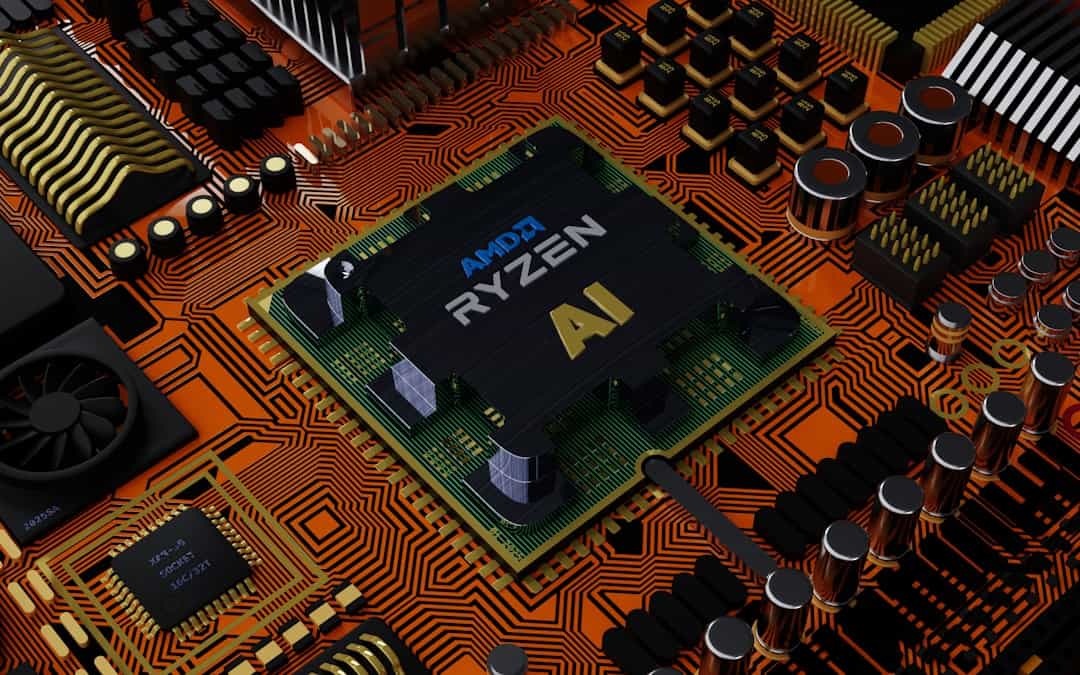AI deep learning is a branch of artificial intelligence that enables machines to learn from data and make decisions in a manner similar to human cognition. It utilizes neural networks, which are algorithms modeled after the structure and function of the human brain. These networks are designed to identify patterns in data and make predictions or decisions based on those patterns.
Deep Learning algorithms can automatically learn to represent data in multiple layers of abstraction, allowing them to process complex information more effectively than traditional machine learning methods. A crucial aspect of deep learning is the use of large datasets to train neural networks. This data teaches the network to recognize patterns and make predictions, with the network adjusting its internal parameters based on feedback received during training.
This process, called backpropagation, enables the network to continuously improve its performance. Deep learning has been applied to various tasks, including image and speech recognition, natural language processing, and autonomous driving. Consequently, it has become an increasingly valuable tool in fields such as healthcare, finance, and manufacturing.
Key Takeaways
- AI deep learning involves training algorithms to learn from data and make predictions or decisions, mimicking the way the human brain works.
- AI deep learning has a wide range of applications, from image and speech recognition to natural language processing and autonomous vehicles.
- Businesses can harness the potential of AI deep learning to improve customer service, optimize operations, and gain insights from large datasets.
- Challenges in implementing AI deep learning include the need for large amounts of high-quality data, the complexity of algorithms, and the potential for bias in decision-making.
- AI deep learning can be leveraged to enhance decision-making processes by providing more accurate predictions and insights based on complex data patterns.
Exploring the Applications of AI Deep Learning
The applications of AI deep learning are vast and diverse, with potential uses in almost every industry. In healthcare, deep learning algorithms are being used to analyze medical images and diagnose diseases with a level of accuracy that rivals or exceeds that of human doctors. In finance, deep learning is being used to detect fraud, optimize trading strategies, and assess credit risk.
In manufacturing, deep learning is being used to improve quality control, predict equipment failures, and optimize production processes. In addition to these more traditional applications, deep learning is also being used to develop new technologies and services. For example, deep learning is being used to create virtual personal assistants that can understand and respond to natural language commands.
It is also being used to develop autonomous vehicles that can navigate complex environments and make split-second decisions to avoid accidents. As the technology continues to advance, the potential applications of AI deep learning will only continue to grow.
Harnessing the Potential of AI Deep Learning in Business

Businesses are increasingly recognizing the potential of AI deep learning to drive innovation and improve efficiency. By leveraging the power of deep learning algorithms, companies can gain valuable insights from their data, automate repetitive tasks, and develop new products and services. For example, retailers can use deep learning to analyze customer behavior and preferences in order to personalize marketing campaigns and improve customer satisfaction.
Manufacturers can use deep learning to optimize their supply chains and improve the quality of their products. Financial institutions can use deep learning to detect fraudulent transactions and assess credit risk. In addition to these operational benefits, AI deep learning can also help businesses gain a competitive edge by enabling them to make better decisions.
By using deep learning algorithms to analyze market trends and customer behavior, companies can identify new opportunities and develop more effective strategies. Furthermore, by automating routine decision-making processes, businesses can free up their employees to focus on more strategic tasks. As a result, AI deep learning has the potential to transform almost every aspect of business operations.
Overcoming Challenges in Implementing AI Deep Learning
| Challenges | Solutions |
|---|---|
| Lack of Quality Data | Data augmentation techniques, transfer learning |
| Complexity of Algorithms | Continuous learning, collaboration with experts |
| Computational Resources | Cloud computing, distributed computing |
| Interpretability of Models | Explainable AI techniques, model visualization |
| Ethical and Legal Concerns | Ethical AI frameworks, compliance with regulations |
While the potential benefits of AI deep learning are significant, there are also several challenges that businesses must overcome in order to successfully implement this technology. One of the biggest challenges is the need for large amounts of high-quality data to train deep learning algorithms. Collecting and labeling this data can be time-consuming and expensive, especially for businesses that are just starting to explore the potential of AI deep learning.
Another challenge is the complexity of deep learning algorithms themselves. Developing and training these algorithms requires specialized expertise in fields such as computer science, mathematics, and statistics. As a result, businesses may struggle to find or afford the talent they need to implement AI deep learning effectively.
Additionally, there are ethical and regulatory considerations that must be taken into account when implementing AI deep learning, particularly in industries such as healthcare and finance where the stakes are high. Despite these challenges, many businesses are finding ways to overcome them and successfully implement AI deep learning. For example, some companies are partnering with academic institutions or research organizations to gain access to the expertise and resources they need.
Others are investing in data collection and labeling processes in order to ensure that they have the high-quality data they need to train their algorithms. As the technology continues to mature, it is likely that these challenges will become less daunting over time.
Leveraging AI Deep Learning for Enhanced Decision Making
One of the most powerful applications of AI deep learning is its ability to enhance decision making. By analyzing large amounts of data and identifying complex patterns, deep learning algorithms can provide valuable insights that can inform strategic decisions. For example, retailers can use deep learning algorithms to analyze customer behavior and preferences in order to optimize their product offerings and marketing strategies.
Manufacturers can use deep learning algorithms to predict equipment failures and optimize their production processes. In addition to providing valuable insights, AI deep learning can also automate routine decision-making processes, freeing up employees to focus on more strategic tasks. For example, financial institutions can use deep learning algorithms to detect fraudulent transactions with a level of accuracy that far exceeds what is possible with traditional methods.
Similarly, healthcare providers can use deep learning algorithms to analyze medical images and diagnose diseases with a level of accuracy that rivals or exceeds that of human doctors.
Ethical Considerations in AI Deep Learning

As AI deep learning continues to advance, it is important for businesses and society as a whole to consider the ethical implications of this technology. One of the key ethical considerations is the potential for bias in deep learning algorithms. Because these algorithms learn from historical data, they may perpetuate existing biases or inequalities if not carefully designed and monitored.
For example, a hiring algorithm trained on historical data may inadvertently discriminate against certain groups if those groups have been underrepresented in the past. Another ethical consideration is the potential impact of AI deep learning on employment. As this technology becomes more advanced, it has the potential to automate many routine tasks currently performed by humans.
While this could lead to increased efficiency and productivity, it could also lead to job displacement for certain workers. It will be important for businesses and policymakers to consider how best to support workers who may be affected by these changes. Finally, there are ethical considerations related to privacy and security when it comes to implementing AI deep learning.
As businesses collect and analyze large amounts of data in order to train their algorithms, they must ensure that they are doing so in a way that respects individual privacy and complies with relevant regulations. Additionally, they must take steps to protect their data from unauthorized access or misuse.
The Future of AI Deep Learning and Its Impact on Society
The future of AI deep learning is likely to be characterized by continued advancements in technology and increasing integration into everyday life. As deep learning algorithms become more sophisticated and powerful, they will be able to tackle increasingly complex tasks across a wide range of industries. This has the potential to drive significant innovation and economic growth.
At the same time, the widespread adoption of AI deep learning will also bring about significant societal changes. For example, as more tasks become automated, there may be a shift in the types of skills that are in demand in the job market. This could lead to changes in education and workforce development programs in order to ensure that workers are equipped with the skills they need to succeed in this new environment.
Additionally, as AI deep learning becomes more integrated into everyday life, there will be increasing pressure on businesses and policymakers to address ethical considerations related to this technology. This will likely involve developing new regulations and standards for the responsible use of AI deep learning, as well as investing in education and awareness programs to ensure that individuals understand the implications of this technology. In conclusion, AI deep learning has the potential to revolutionize almost every aspect of business and society.
By understanding the basics of this technology, exploring its applications, harnessing its potential in business operations, overcoming implementation challenges, leveraging it for enhanced decision making, considering its ethical implications, and preparing for its future impact on society, businesses can position themselves for success in this new era of technological advancement.
If you’re interested in the potential impact of AI and deep learning on the future of virtual worlds like the metaverse, you may want to check out this article on challenges and opportunities from a business and economic perspective. It explores how AI technologies could shape the way businesses operate within virtual environments and the potential economic implications of these advancements.
FAQs
What is AI deep learning?
AI deep learning is a subset of artificial intelligence that involves training algorithms called neural networks to learn from large amounts of data. These neural networks are designed to mimic the way the human brain processes information, allowing them to recognize patterns and make decisions.
How does AI deep learning work?
AI deep learning works by using neural networks to process and analyze large amounts of data. These networks are trained using a process called backpropagation, where the algorithm adjusts its parameters to minimize the difference between its predicted output and the actual output. This allows the network to learn and improve its performance over time.
What are some applications of AI deep learning?
AI deep learning has a wide range of applications, including image and speech recognition, natural language processing, autonomous vehicles, medical diagnosis, and financial forecasting. It is also used in recommendation systems, fraud detection, and many other areas where complex pattern recognition and decision-making are required.
What are the benefits of AI deep learning?
Some of the benefits of AI deep learning include its ability to process and analyze large amounts of data quickly and accurately, its potential to automate complex tasks, and its ability to improve over time through continuous learning. It also has the potential to uncover insights and patterns that may not be apparent to human analysts.
What are the challenges of AI deep learning?
Challenges of AI deep learning include the need for large amounts of labeled data for training, the complexity of designing and training neural networks, and the potential for biases to be present in the data. Additionally, there are concerns about the ethical and societal implications of AI deep learning, such as privacy and job displacement.











Leave a Reply